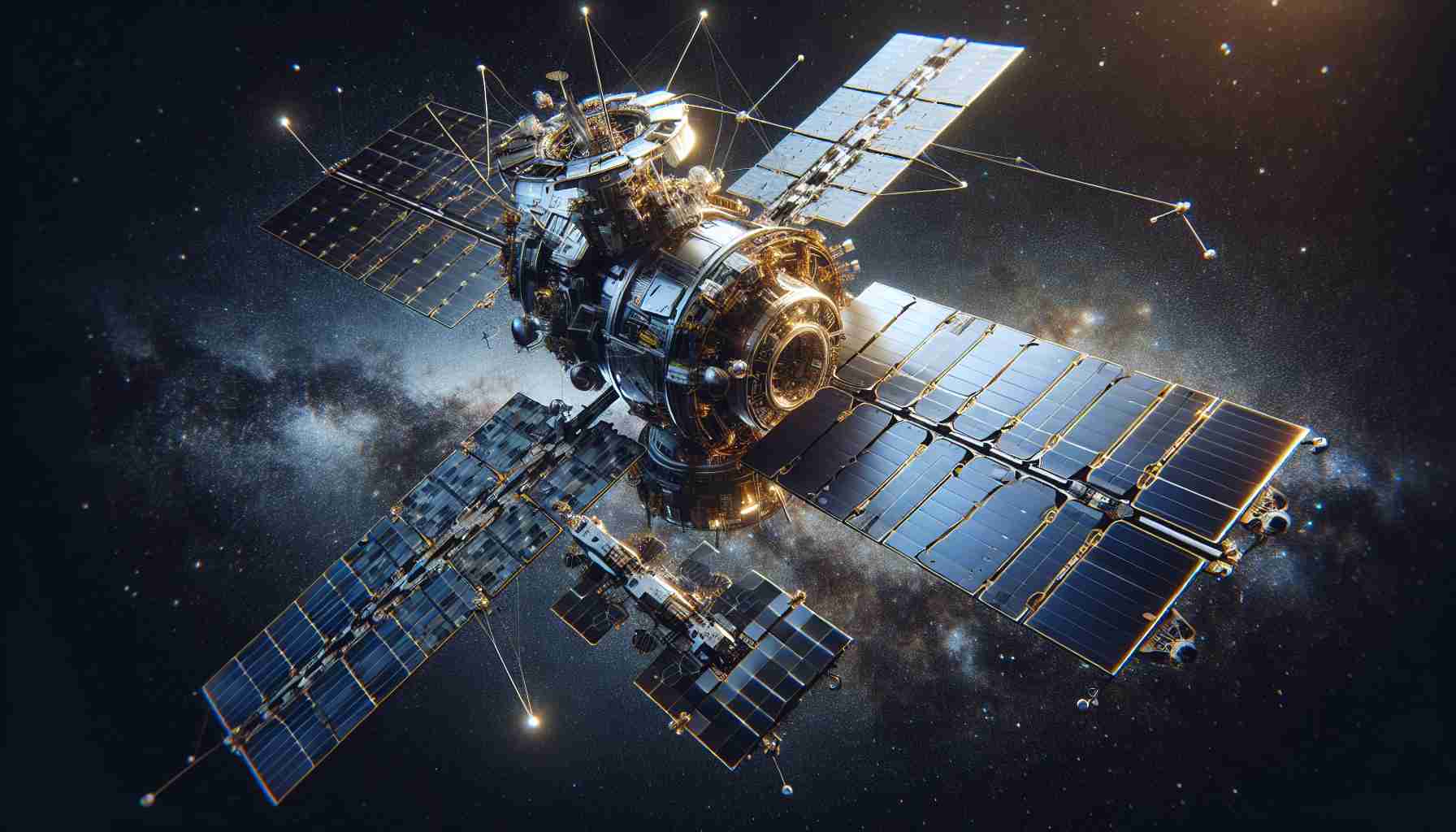
Aptos Orbital, a company based in California, has made significant strides in satellite intelligence with the launch of their new platform today, developed in collaboration with Amazon Web Services (AWS). This innovative solution enhances artificial intelligence processing capabilities directly in orbit, marking a transformative step in satellite technology.
The Aptos terminal is a compact device designed with small size, weight, and power (SWAP) specifications. It combines on-orbit data processing with advanced communication functions and cloud integration, enabling satellites to operate AI systems while in space. This cutting-edge technology ensures streamlined operations and improved communication, surpassing traditional satellite ground station methods.
The system offers uninterrupted satellite connectivity, irrespective of weather conditions and without reliance on conventional communication setups. As a result, satellites equipped with this technology can analyze data while in orbit, transmitting valuable insights through cloud services, thereby providing users with instantaneous access to information akin to using a computer.
The collaboration with AWS that backs this platform will infuse it with powerful cloud capabilities. Additionally, Aptos Orbital has secured partnerships with eight major clients, which together account for over $100 million in commitments. Looking ahead, the company is poised to quickly transition from design to deployment within a mere six months, aspiring to deploy over 1,000 satellites utilizing this platform by the year 2030.
Transforming Satellite Intelligence: Aptos Orbital’s Latest Innovation
Aptos Orbital, the California-based satellite technology company, has notably advanced the realm of satellite intelligence with its innovative platform developed in partnership with Amazon Web Services (AWS). This groundbreaking advancement not only enhances artificial intelligence processing capabilities in orbit but also introduces several key features and implications that could reshape the future of satellite imagery and data analysis.
Key Innovations and Features
The Aptos terminal is designed to optimize the satellite operational environment by integrating state-of-the-art AI capabilities directly aboard the satellites. This approach significantly reduces latency, as data does not need to return to Earth for processing. Moreover, Aptos Orbital’s system boastfully utilizes AI for real-time data analytics, machine learning, and predictive modeling, thereby allowing quick and informed decision-making for various applications such as disaster response, agricultural monitoring, and environmental conservation.
Important Questions and Answers
1. How does on-orbit AI processing improve satellite functionality?
– On-orbit AI processing allows for immediate analysis of data, which means that satellites can make real-time decisions, enhancing their operational autonomy. This is particularly crucial in time-sensitive situations like disaster relief, where immediate data interpretation can directly impact response efficacy.
2. What industries can benefit from Aptos Orbital’s technology?
– Industries such as agriculture, urban planning, environmental monitoring, and national security stand to gain significant advantages. For instance, farmers can receive instant insights into crop health, while defense agencies can utilize enhanced surveillance capabilities.
3. What is the scalability of this technology?
– The company aims to deploy over 1,000 satellites by 2030, indicating a robust scalability strategy that can accommodate an expanding range of services and applications.
Challenges and Controversies
While Aptos Orbital’s innovation carries significant promise, it is not without challenges and controversies.
– Space Debris: The increase in satellite launches raises concerns about space debris and the sustainability of orbital environments. As more satellites are deployed, the risk of collisions and operational hazards escalates.
– Data Privacy: With advanced satellite capabilities, the potential for intrusive surveillance becomes a concern. Questions regarding data ownership, privacy rights, and ethical implications are at the forefront of discussions surrounding satellite intelligence.
– Regulatory Hurdles: The satellite industry is heavily regulated, and Aptos Orbital will need to navigate various national and international laws governing satellite operations and data usage.
Advantages of Aptos Orbital’s Technology
– Real-Time Data Processing: The integration of AI in orbit allows for instantaneous data analytics, reducing the time from data collection to actionable insights.
– Enhanced Operational Independence: Satellites can function more autonomously, which is especially beneficial in remote or high-stakes environments.
– Reduced Latency: On-orbit processing minimizes the delay traditionally associated with communication between satellites and ground stations.
Disadvantages of Aptos Orbital’s Technology
– Initial Investment Costs: Developing and deploying advanced satellite technology involves significant upfront costs, which could be a barrier for some organizations.
– Complexity of Systems: The sophistication of on-board AI and processing systems may lead to increased maintenance and operational complexity.
– Potential for Increased Regulations: With the advancement of satellite technology, stricter regulations may arise that could impact operational flexibility.
In conclusion, Aptos Orbital’s latest innovation represents a paradigm shift in how satellite intelligence operates, promising a future filled with advanced applications but also inviting necessary scrutiny regarding its broader implications. As the technology progresses, ongoing discourse around ethical considerations and sustainable practices in space will be crucial.
For further details on satellite technology advancements and market trends, visit NASA or explore opportunities at SpaceX.



